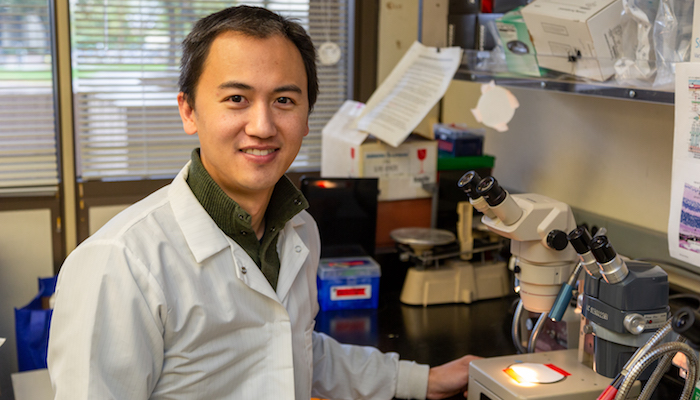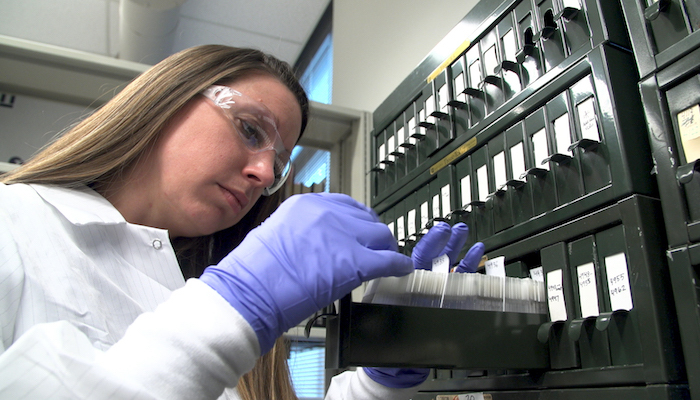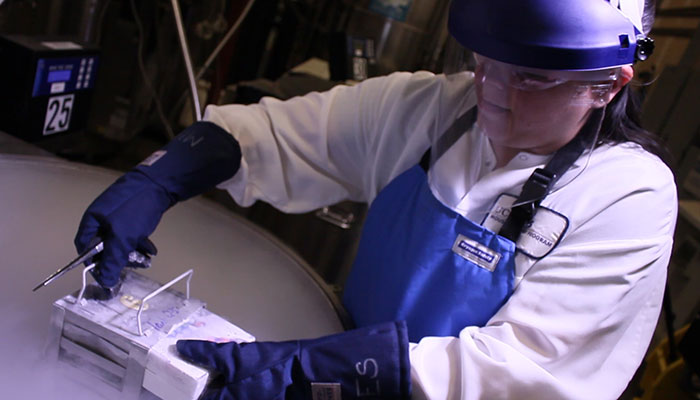UC Davis Receives $3.2 Million Award to Study Age-Related Macular Degeneration
Glenn Yiu, an associate professor in the Department of Ophthalmology and Vision Science, has been awarded a five-year, $3.2 million grant from the National Institutes of Health National Eye Institute for a study on age-related macular degeneration, or AMD.
Yiu and his team will be looking at factors that may contribute to the development of AMD, including genetics, metabolism, and a Western-style diet high in fat and sugar. He will also be looking at whether high doses of statins — a class of lipid-lowering medications— can slow the progression of the disease.
Treatments for AMD are targeted for intermediate and advanced stages of the disease, when interventions may be limited by irreversible cell loss.
“Currently, the only treatments for early AMD are over-the-counter antioxidant vitamins that can only slow down but not stop disease progression,” said Yiu, who is a retina specialist and physician-scientist. “Understanding the mechanism of early AMD could help us discover new treatments to intervene at earlier stages of this otherwise blinding condition.”
AMD is the leading cause of vision loss for people over 50. Approximately 11 million people in the United States and 170 million around the globe are affected with AMD.
The disease is progressive and destroys the macula, the part of the eye that provides sharp, central vision needed for seeing objects clearly. AMD does not cause complete blindness but can make it harder to see faces, drive or do close-up work.
The research will be conducted on a unique colony of geriatric rhesus monkeys at the California National Primate Research Center (CNPRC).
“Most biomedical research use mice as model organisms. However, mice do not have a macula, and it’s difficult to study macular degeneration in animals that do not have a macula,” explained Yiu.
Primates, including humans and rhesus monkeys, are the only animal species to have a true macula. Monkeys spontaneously develop a feature known as soft drusen, which resemble early human AMD. Approximately 30% of the aged primates at CNPRC have this condition.
Other team members for the study include Sara Thomasy, a veterinary ophthalmologist at UC Davis who specializes in vision research in nonhuman primates; Peter Havel, a UC Davis nutritional biologist and an expert in metabolic syndrome; Sina Farsiu, a bioengineer at Duke University who is experienced with eye imaging and algorithm development; and Rui Chen, a geneticist at Baylor College of Medicine with expertise in human and nonhuman primate genetics.
“This research effort is a wonderful example of how interdisciplinary collaborations offer a unique opportunity to solve very complex biological challenges,” said Prasant Mohapatra, vice chancellor for research at UC Davis. “By understanding more about the development of this disease, we may be able to better treat, or possibly prevent, a condition that causes vision loss in millions of people.”
Contact
- Glenn Yiu, Associate Professor, Department of Ophthalmology and Vision Science, [email protected]
- Lisa Howard, Communications Specialist, UC Davis Office of Research, [email protected]
Resources
- Soft Drusen in Rhesus Macaques as a Nonhuman Primate Model of Early Age-Related Macular Degeneration
- Yiu Lab: Translational Retinal Research Laboratory
- California National Primate Research Center
Latest News & Events















